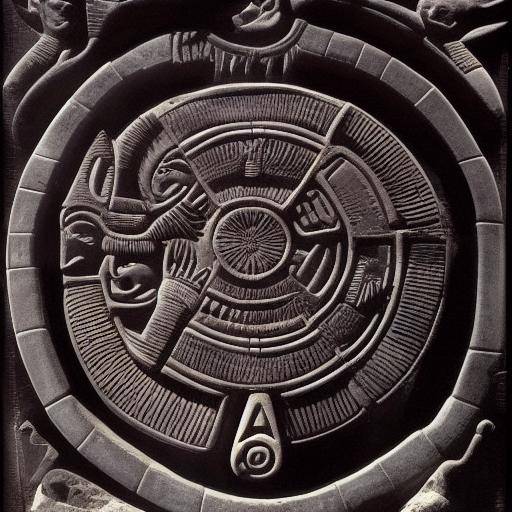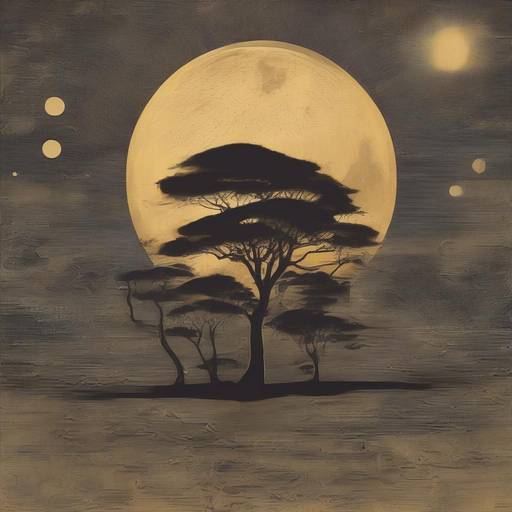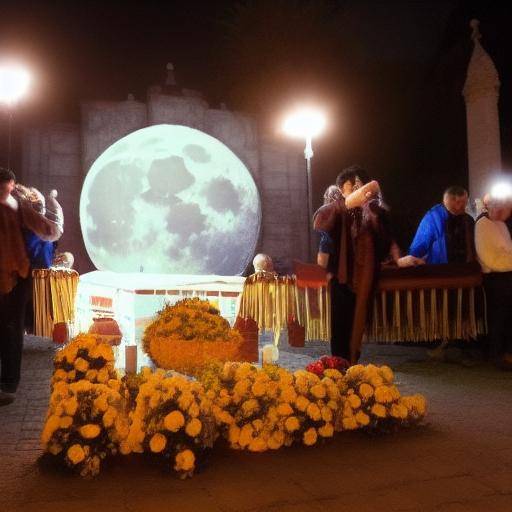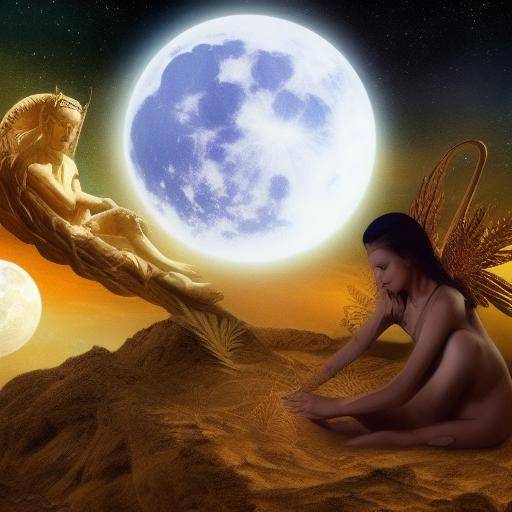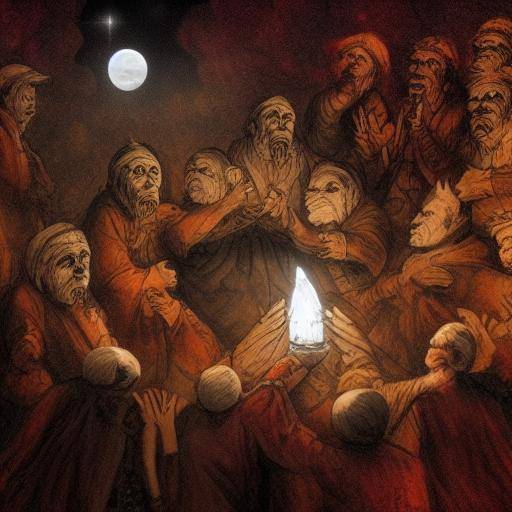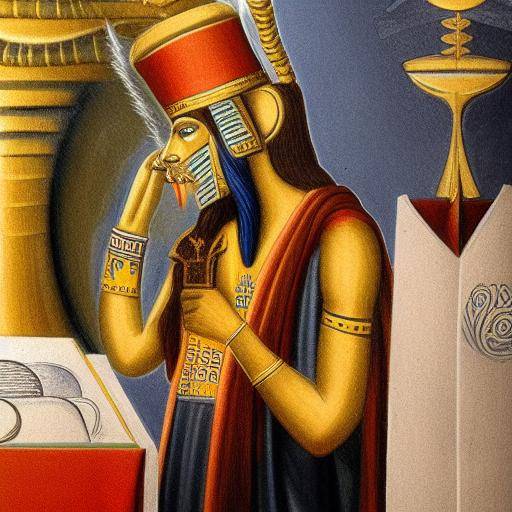
Ancient Egypt continues to fascinate humanity with its enigmatic mythology and powerful gods. Among them, Thoth stands out as the god of wisdom, writing, magic, and the moon. His symbol, the Ibis, attributes him a singularity that he deserves to explore. Join us on this journey to discover the cultural and spiritual wealth represented by Thoth in Egyptian mythology.
History and Meaning of Ibis in Egyptian Mythology
The Ibis is a bird of long legs and curved peak that has been venerated in various cultures, but in ancient Egypt, it was especially venerated as a symbol of Thoth. This ibis was associated with wisdom and writing, which is reflected in the personality and domain of the god mentioned.
The Egyptians believed that Thoth used the ibis as an intermediary to communicate with mortals, as well as being the guardian of time, moon and measurement. This fact makes the ibis a symbol of great significance within Egyptian mythology, representing the connection between the earth and the sky.
Through the worship of Thoth and its association with the ibis, the Egyptians expressed their deep admiration for wisdom and knowledge, values that still remain relevant today.
The Influence of the Moon in Egyptian Mythology
The moon also played a crucial role in Egyptian mythology, being associated with one of the many aspects of Thoth. In Egyptian culture, the moon represented renewal, the cycle of life and death, and constant change. Thoth, as a god of the moon, was venerated for his ability to influence these aspects of human existence.
The Egyptians believed that Thoth used the moon to help in the process of rebirth and regeneration, manifesting his power and wisdom through lunar light. This association with the moon turns Thoth into a deity that transcends mere worship, becoming a symbol of connection with the cycles of nature and the universe.
The Meaning of Hieroglyphics in Thoth's Scripture and Wisdom
One of Thoth's most significant contributions was the invention of writing and hieroglyphics. In Egyptian mythology, Thoth was considered the inventor of writing, which gave him a particularly high status among the gods.
The Egyptian hieroglyphics were much more than a simple writing system; they were a manifestation of Thoth's wisdom, knowledge and power. Each symbol conveyed profound and mystical meanings, and they were regarded as bearers of the essence of reality itself.
In addition to their function as a writing system, hieroglyphics represented a divine connection with the gods, including Thoth. Through his association with the invention of hieroglyphics, Thoth became the guardian of knowledge and wisdom, thus establishing a lasting legacy in Egyptian culture.
Final Conclusions
The figure of Thoth, god of wisdom, writing and moon, remains relevant in contemporary culture as a symbol of transcendental knowledge. Its association with the ibis, moon and hieroglyphics exemplifies its influence in ancient Egyptian civilization, as well as in broader spiritual and cultural contexts.
Through the interpretations of his symbols and the stories around him, Thoth continues to inspire those who seek knowledge, wisdom and connection with the divine. His legacy endures through the centuries, reminding us of the importance of wisdom and understanding in our own search for meaning in the world.
FAQs
**1. Why was the ibis so associated with Thoth in Egyptian mythology?
The ibis was closely associated with Thoth in Egyptian mythology due to its symbolism of wisdom and knowledge. The Egyptians venerated the ibis as a symbol of connection with the gods, and being considered an intermediary between the earthly world and the divine, the ibis became a tangible representation of Thoth's influence in everyday life.
2. How did Thoth influence the moon according to Egyptian mythology?
In Egyptian mythology, Thoth was seen as a deity that influenced the lunar cycle and the constant renewal represented by the moon. He was given the power to facilitate the process of rebirth and regeneration through lunar light, which made him a figure of great relevance in the life and beliefs of the Egyptians.
3. Why were hieroglyphics so important in Egyptian culture?
The hieroglyphics were of utmost importance in Egyptian culture because of their role as a writing system, as well as being considered bearers of the essence of reality itself. They were used to communicate, record historical and religious facts, and transmit fundamental knowledge. His invention by Thoth raised them to a sacred status.
4. What was Thoth's role as the god of writing in ancient Egypt?
The role of Thoth as a god of writing in ancient Egypt was fundamental, as the invention of writing and hieroglyphics was attributed to him. This connection with writing made him the guardian of knowledge and wisdom, being his legacy one of the most influential in ancient Egyptian culture.
5. How has Thoth influenced contemporary culture?
The figure of Thoth has influenced contemporary culture as a symbol of transcendental knowledge and wisdom. His association with the ibis, moon and hieroglyphics continues to inspire those who seek knowledge, wisdom and connection with the divine, transcending ancient Egypt to impact spirituality and culture in general.
6. Why is it important to understand Thoth's influence on Egyptian mythology?
It is important to understand Thoth's influence on Egyptian mythology because it gives us a more complete view of ancient culture, beliefs and values. Furthermore, it allows us to understand how these beliefs have endured over time and remain relevant today in terms of wisdom and spirituality.

